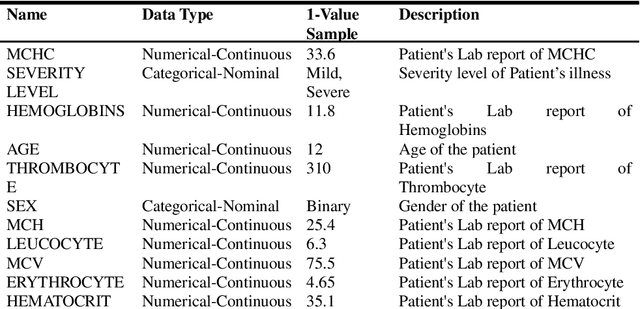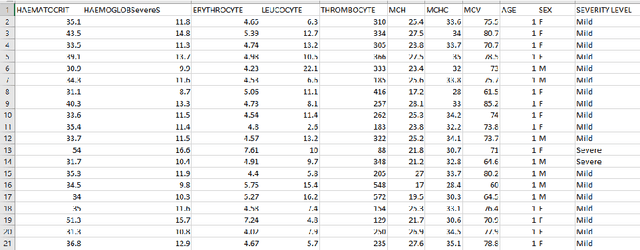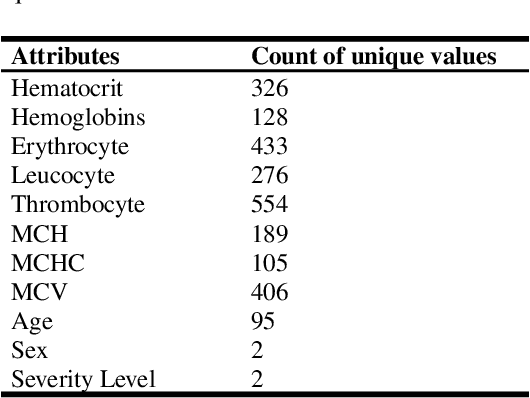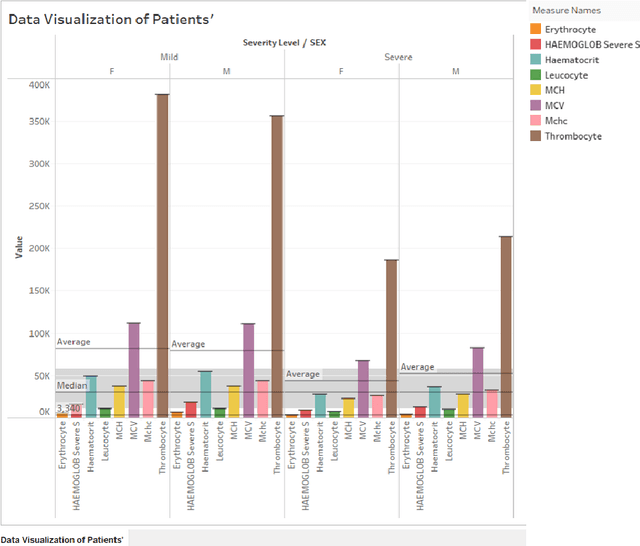Patients' Severity States Classification based on Electronic Health Record (EHR) Data using Multiple Machine Learning and Deep Learning Approaches
Paper and Code
Sep 29, 2022



This research presents an examination of categorizing the severity states of patients based on their electronic health records during a certain time range using multiple machine learning and deep learning approaches. The suggested method uses an EHR dataset collected from an open-source platform to categorize severity. Some tools were used in this research, such as openRefine was used to pre-process, RapidMiner was used for implementing three algorithms (Fast Large Margin, Generalized Linear Model, Multi-layer Feed-forward Neural Network) and Tableau was used to visualize the data, for implementation of algorithms we used Google Colab. Here we implemented several supervised and unsupervised algorithms along with semi-supervised and deep learning algorithms. The experimental results reveal that hyperparameter-tuned Random Forest outperformed all the other supervised machine learning algorithms with 76% accuracy as well as Generalized Linear algorithm achieved the highest precision score 78%, whereas the hyperparameter-tuned Hierarchical Clustering with 86% precision score and Gaussian Mixture Model with 61% accuracy outperformed other unsupervised approaches. Dimensionality Reduction improved results a lot for most unsupervised techniques. For implementing Deep Learning we employed a feed-forward neural network (multi-layer) and the Fast Large Margin approach for semi-supervised learning. The Fast Large Margin performed really well with a recall score of 84% and an F1 score of 78%. Finally, the Multi-layer Feed-forward Neural Network performed admirably with 75% accuracy, 75% precision, 87% recall, 81% F1 score.
 Add to Chrome
Add to Chrome Add to Firefox
Add to Firefox Add to Edge
Add to Edge